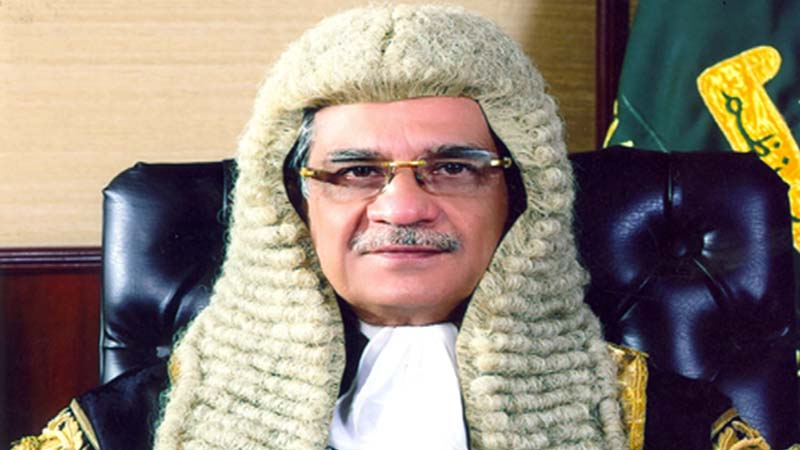
A three-member SC bench, comprising the CJP, Justice Umar Ata Bandial and Justice Faisal Arab, was hearing a suo motu case about the deteriorating condition of Katas Raj temple in Chakwal.
The chief justice noted that the temple was not only a place of cultural significance for the Hindu community, but also a part of the country’s national heritage, which must be protected and preserved.
After going through the reports submitted by the Punjab government over the matter, the court noted that the matter needed an immediate solution.
“We have to find out a solution of the matter: how water can be provided to the temple’s pond which is drying up,” the chief justice said.
“If we have to shut 10 tube-wells of the area or stop the water consumption of the factories, we will do it to save the national heritage,” he said.
He maintained that the cement factories in the area had cut away over half of the mountains, which was a matter of concern for the residents of the area.
He said the court was not against establishing of factories. “However, such factories should be established in such places where ordinary citizens are not affected. No one can survive without clean air, water and environment,” he said.
In response to court’s earlier orders, the Punjab government and the Chakwal district coordination officer submitted reports on the matter. An additional advocate general of Punjab told the court that a cement factory operating in the area was consuming more water than the entire population of Chakwal city.
The reports stated that almost every home in Katas Waulah and Choa Saidan Shah drew water through boring due to the absence of a proper water supply network, which was decreasing the water level of the area.
Besides, unchecked plantation of eucalyptus saplings, which uses a lot of water, had further aggravated the problem.
The court then issued notices to the cement factory owner and directed Attorney General Ashtar Ausaf Ali, to form a committee to investigate the matter.
The court also suggested that a resident of Chakwal, Gen (r) Safdar, who is known to raise his voice about the issue, should be included in the committee.
The court observed that it would summon the chief secretaries of all the provinces as well as principal secretary to the prime minister, besides taking the experts onboard if needed.
The court observed that the rights of minorities should be protected at all cost. Later, the court adjourned the hearing till November 30.
The court had taken suo motu notice on media reports that the pond of Katas Raj temple complex was drying up as cement factories of nearby areas were using a large amount of water through a number of drilled bores, severely reducing the sub-soil level.
The Punjab government in its report had stated that an aquifer feeding the pond at the Katas Raj temple complex was under stress and this had caused a drastic fall in the water level.
The report stated that Katas Raj temple was located in the mineral-rich Salt Range, which had four cement plants. One of these is just two kilometres from the historic site. Since there is no major source of water in the vicinity, the factories rely on sub-soil water to meet their needs.
It said although the plant operated on “dry process”, which did not consume water, the facility needed water nevertheless for its cooling towers and to meet the daily needs of its employees.
“To meet its requirement, the factory operates 14 tube-wells that are allowed to extract 148 cubic metres of water per hour. The Chakwal administration, taking a serious view of environmental hazards caused by industrial activity, had ordered closure of three of the 14 tube-wells in order to reduce stress on the aquifer,” the report said.
Published in Daily Times, November 24th 2017.














